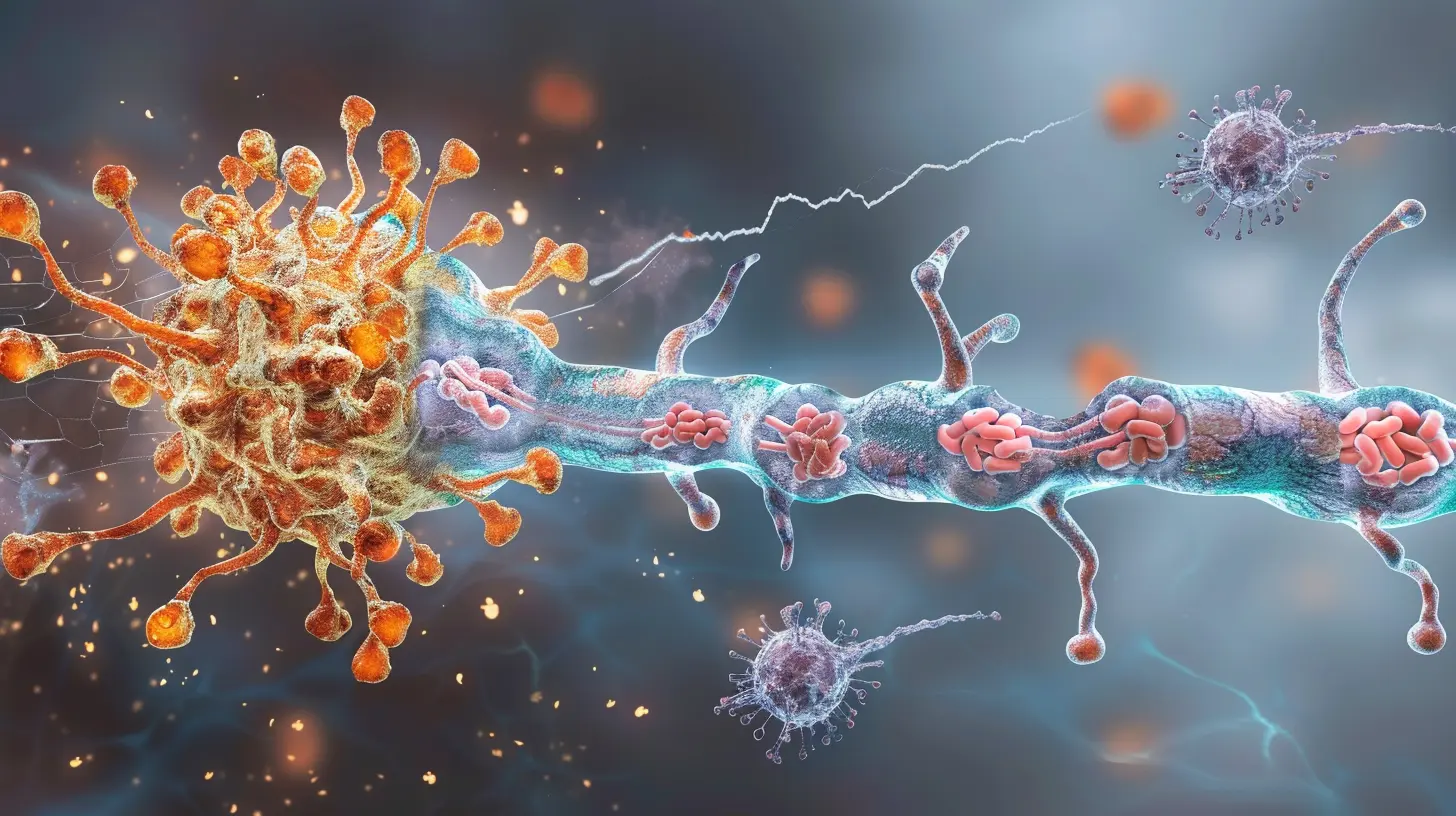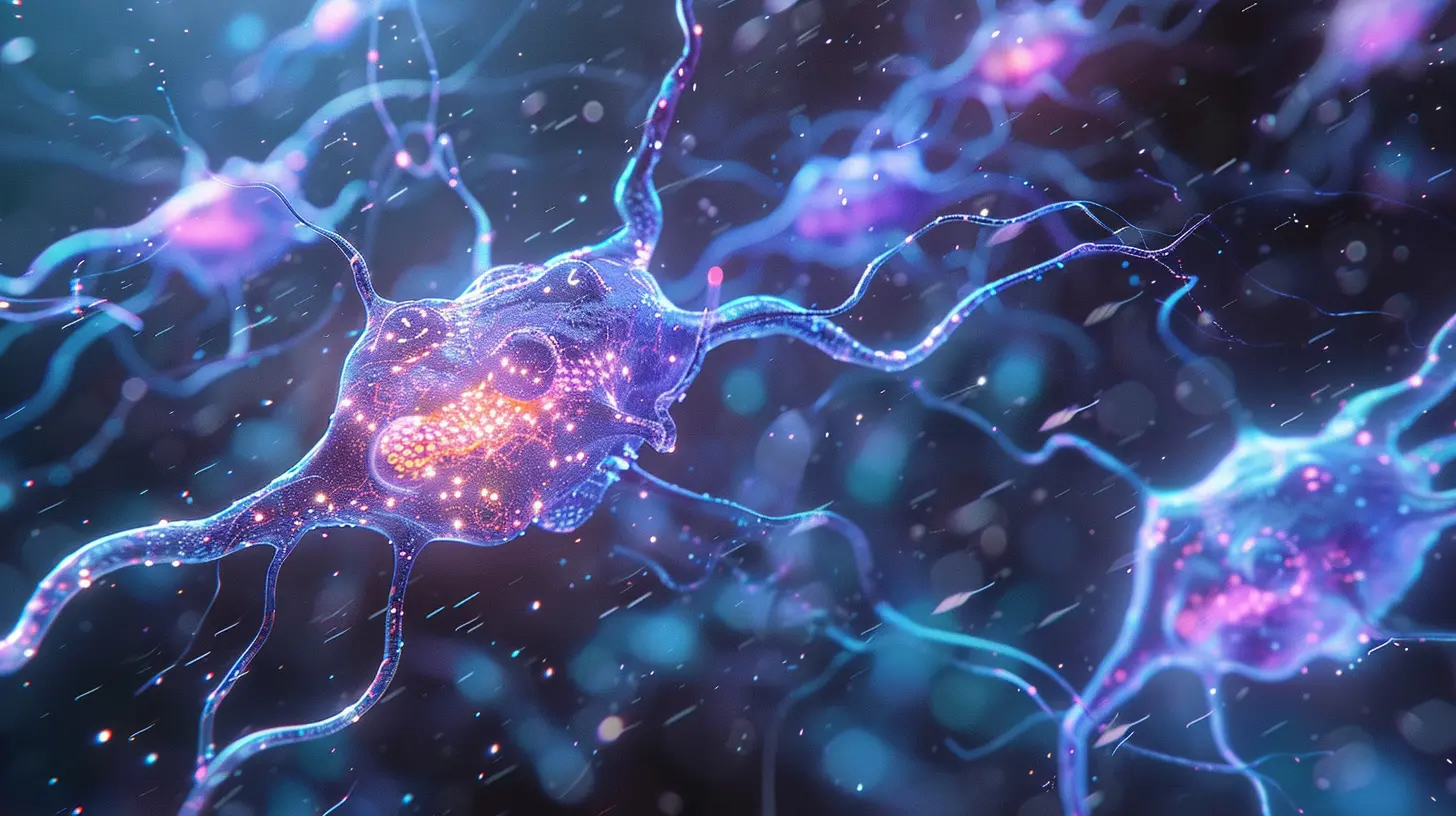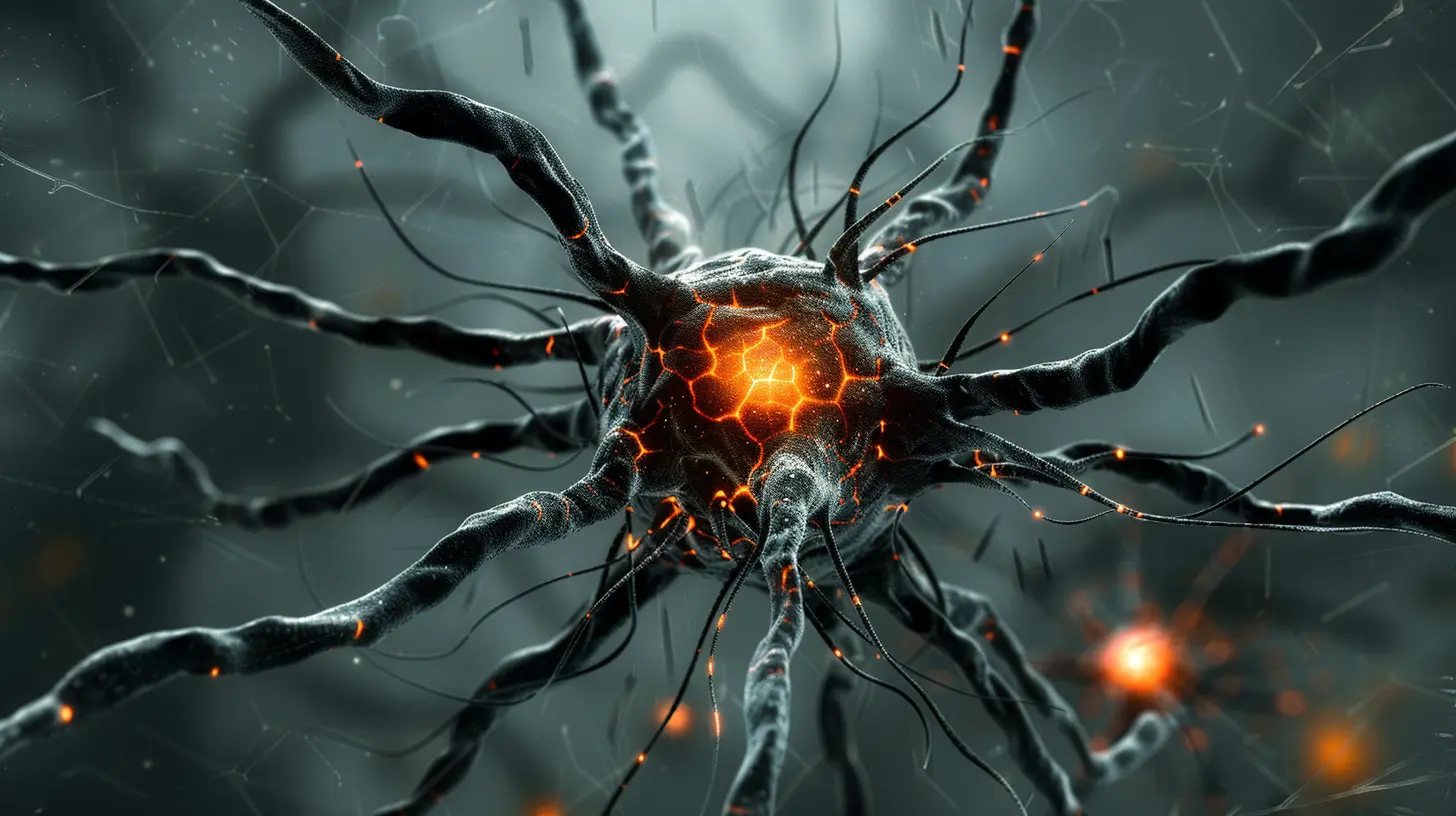The Role of Neurotransmitters in Mood and Emotion Regulation
12 July 2025
Ever had one of those days where you just feel... off? Maybe you're unusually anxious, maybe you're struggling to find motivation, or maybe you’re just not as happy as you were yesterday—and you can’t quite explain why. While several factors can influence how we feel, there's something happening behind the scenes in our brains that holds a lot of power: neurotransmitters.
These tiny chemical messengers play a huge role in shaping our moods and managing our emotional responses. They're like the backstage crew in a play—mostly unseen, but absolutely crucial for the show to go on. In this article, we're going to unpack what neurotransmitters are, how they influence mood and emotions, and why understanding them can help us take better care of our mental well-being.

What Are Neurotransmitters Anyway?
Let’s start simple. Neurotransmitters are chemicals that neurons (those nerve cells in your brain and nervous system) use to talk to each other. Think of them like text messages between brain cells. When one neuron wants to send a message to another, it releases a neurotransmitter into the tiny gap between them—the synapse—and the next neuron picks it up.Now, not all neurotransmitters are the same. Just like messages can be loving, angry, urgent, or silly, different neurotransmitters have different "tones" or effects. Some rev you up, some calm you down, and others help you feel joy, contentment, or even sadness.

Why Neurotransmitters Matter for Mood and Emotions
Let’s face it: life is emotional. We feel happy, sad, angry, anxious, hopeful—sometimes all within the same hour. While external circumstances definitely influence our emotions, the real puppet masters are often found within our brains.Neurotransmitters help regulate how we interpret and respond to life. They’re involved in everything from motivation and pleasure to fear and aggression. When they’re in balance, we tend to feel mentally and emotionally healthier. When they’re out of sync? That’s when mood disorders like depression, anxiety, and bipolar disorder can creep in.
So, let’s break down some of the major players in the mood and emotion game.

1. Serotonin – The “Feel Good” Chemical
If there’s one neurotransmitter most people have heard of, it’s serotonin. Sometimes called the “feel good” chemical (for good reason), serotonin is all about emotional stability and well-being.What It Does:
- Helps regulate mood, anxiety, and happiness- Controls appetite and digestion
- Influences sleep and sexual desire
How It Impacts Mood:
Low levels of serotonin are often linked to depression and anxiety. That’s why many antidepressant medications—like SSRIs (Selective Serotonin Reuptake Inhibitors)—aim to boost serotonin levels in the brain.But here's the twist: about 90% of serotonin is actually produced in your gut. Yep, your "second brain" plays a much bigger role in emotional health than we once thought. Eating well, getting enough sleep, and managing stress can go a long way in supporting healthy serotonin production.

2. Dopamine – The Motivation Molecule
Ah, dopamine. The neurotransmitter that gives you that juicy rush of pleasure when you eat your favorite food, smash your to-do list, or get a like on that Instagram post.What It Does:
- Influences reward, motivation, and pleasure- Encourages persistence and goal-setting
- Regulates movement and attention
How It Impacts Mood:
Low dopamine levels can leave you feeling apathetic, unmotivated, or even depressed. On the other hand, too much dopamine activity is linked to conditions like schizophrenia. So, it’s all about balance.Ever wonder why you feel amazing after finishing a workout or completing a challenging task? That’s dopamine giving you a high-five. To naturally boost dopamine, try engaging in activities that offer small rewards—like setting achievable goals, listening to music you love, or even practicing mindfulness.
3. Norepinephrine – The Stress Responder
Sometimes you need to be alert, focused, and ready to react—fast. That’s where norepinephrine (also called noradrenaline) comes in.What It Does:
- Increases alertness and arousal- Helps in fight-or-flight responses
- Elevates heart rate and blood pressure during stress
How It Impacts Mood:
While it’s helpful in short bursts, chronic high levels of norepinephrine (hello, stress!) can lead to anxiety, restlessness, and sleep problems. On the flip side, low levels are often linked to fatigue, lack of focus, and depression.Managing stress in healthy ways—through physical activity, relaxation techniques, or good ol’ deep breathing—can help keep norepinephrine in check.
4. GABA – The Calming Agent
GABA (gamma-aminobutyric acid) is like the brakes on your brain. When everything’s racing at a million miles per hour, GABA steps in to slow things down.What It Does:
- Inhibits or calms neural activity- Reduces anxiety and stress
- Promotes calmness and sleep
How It Impacts Mood:
Low GABA levels have been associated with anxiety disorders, panic attacks, and insomnia. People with healthy GABA activity tend to feel more relaxed and less overwhelmed.You can support GABA naturally through mindfulness, yoga, meditation, and reducing caffeine (sorry coffee lovers, moderation is key).
5. Endorphins – Nature’s Painkillers
Ever felt a “runner’s high”? That’s your endorphins talking. These neurotransmitters act like natural opioids, reducing pain and creating feelings of pleasure.What They Do:
- Reduce pain perception- Enhance pleasure and well-being
- Boost mood during exercise or laughter
How They Impact Mood:
Endorphin spikes can make you feel euphoric, while low levels might contribute to emotional pain and sadness. The good news? You can boost endorphins in fun ways—exercise, laughter, dancing, even eating spicy food. Yes, your brain loves that salsa.
6. Oxytocin – The “Love” Hormone
Technically, oxytocin is both a hormone and a neurotransmitter, but it still deserves a seat at the table. It’s all about bonding, trust, and connection.What It Does:
- Fosters emotional bonds (like between parents and babies)- Encourages empathy and trust
- Plays a role in sexual intimacy and love
How It Impacts Mood:
Higher oxytocin levels are linked to better stress regulation and emotional resilience. Physical touch, cuddling, or even eye contact can stimulate oxytocin release. So yes, hugs really do help.What Happens When Neurotransmitters Get Out of Balance?
Imagine an orchestra where the violin section is playing beautifully, but the percussion section is either too loud or completely missing. The result? A chaotic performance.That’s what happens when neurotransmitters are out of balance. The harmony of your mood and emotions depends on these chemicals playing their parts correctly. Here are a few common neurotransmitter imbalances and how they show up:
- Low serotonin – Depression, anxiety, sleep issues
- Low dopamine – Apathy, fatigue, lack of motivation
- High norepinephrine – Chronic stress, panic attacks
- Low GABA – Restlessness, irritability, insomnia
- Low endorphins – Emotional sensitivity, physical pain
- Low oxytocin – Difficulty bonding, loneliness
How Lifestyle Affects Neurotransmitter Balance
You don’t need to memorize every single neurotransmitter to support your mental health. But knowing how your lifestyle affects these chemicals? That’s power.Here are a few research-backed ways to naturally support neurotransmitter balance:
- Exercise regularly – especially aerobic workouts, yoga, and strength training
- Eat a balanced diet – Include protein, healthy fats, and plenty of colorful fruits and veggies
- Get good sleep – Aim for 7-9 hours per night
- Practice stress-reduction techniques – Meditation, journaling, breathing exercises
- Build strong social connections – Meaningful relationships are a buffer against stress and emotional lows
- Avoid substance abuse – Alcohol and drugs might feel good short-term but can disrupt neurotransmitter function long-term
Do You Need Medication?
Sometimes, lifestyle changes aren’t enough—and that’s okay. For individuals with chronic imbalances or mental health conditions like depression, anxiety, or bipolar disorder, medications can help adjust neurotransmitter levels. Antidepressants, mood stabilizers, or stimulants don’t "fix" the problem, but they can help your brain regain balance.Of course, medication decisions are best made with a mental health professional. If you’re struggling, reach out. You don’t have to go through it alone.
Final Thoughts: Your Brain Chemistry Isn’t Set in Stone
Here’s the beautiful truth: you’re not stuck with the emotions you have right now. Your brain is incredibly adaptable. With the right care, support, and sometimes professional help, neurotransmitter activity can shift—leading to better mood regulation and emotional well-being.It’s not about being happy all the time (that’s not realistic), but about understanding the inner workings of your brain. When you grasp how neurotransmitters influence your emotions, you empower yourself to show up with more compassion, awareness, and resilience. Because sometimes, the first step to feeling better is simply knowing what’s going on under the surface.
all images in this post were generated using AI tools
Category:
NeuroscienceAuthor:

Janet Conrad
Discussion
rate this article
1 comments
Francesca Porter
Understanding neurotransmitters deepens our insight into mood regulation, highlighting the intricate connections between brain chemistry and emotional well-being.
July 31, 2025 at 2:29 AM

Janet Conrad
Thank you! I'm glad you found the connection between neurotransmitters and emotional well-being insightful. Understanding this relationship is crucial for addressing mood regulation effectively.


